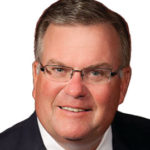Dykhouse offers thoughts on business climate, advice for entrepreneurs
South Dakota’s economy is built on entrepreneurship and well-positioned to capitalize on new technologies in business, said Dana Dkyhouse, CEO of First Premier Bank.

Dana Dykhouse
Dykhouse will speak and take questions from entrepreneurs at an event Oct. 26 organized by the Zeal Center for Entrepreneurship.
I.N. After Hours will be held at Prairie Berry East Bank, 322 E. Eighth St., starting at 4 p.m. and continuing with a 5 p.m. mixer.
Here’s more from Dykhouse on what to expect.
What made you decide to become involved with Zeal?
I said yes as soon as I was asked by Zeal. Without a doubt, South Dakota is built by entrepreneurs. We are an economy that has typically first- and second-generation business owners. As a bank who services those various businesses, it’s natural to become involved in this.
What are some common questions you get from entrepreneurs?
Often, the first questions is, “How do I raise money to get started?” Many people have an idea or process they want to market, but they don’t have the capital to do it. Often, a bank supplies supplemental capital, but what entrepreneurs need is venture capital. So while banks can help supplement capital, banks don’t put the first dollar in. That needs to come from venture capital, which in South Dakota often means family, friends, savings from their current job or angel funds. And there are very few angel fund investors in South Dakota.
What are some things smaller-business owners should be prepared to discuss before they come see a lender like First Premier?
The first thing is capital. It requires capital to start a business, and they have to be prepared. Too many people think the first dollar out of the business needs to be their own salary, and that may be a necessity, but they need to think about investing two or three years of life without getting a return before it’s up and running. Many new business ventures don’t have that type of mentality or reserve built up.
There are a lot of opportunities for business planning. SBA offers guidance. Many young people at colleges and universities in South Dakota can take courses in entrepreneurship, and many have been through those college or university courses and have some idea what they need. They’re much better prepared than 20 years ago when I was in this business, so that’s good to see.
From your vantage point, are there any trends you’re seeing emerge in local business?
Technology is revolutionizing even our small businesses in South Dakota. I visited a business a couple weeks ago that was truly a metal fab and welding shop that is today almost totally done with robots. It’s robotic manufacturing and welding. So now they do not employ as many welders; they employ computer code writers to write code for the welding machines. So I think that’s changing dramatically the whole business climate and opportunity in South Dakota. In agriculture, within five years most people will plant corn with driverless tractors. And I recently saw a demonstration of a driverless mower on a golf course fairway. That’s going to be interesting. And why not? You can utilize GPS to guide the mowers and won’t require the manpower to do that. That will be dramatic in the next five years I think, and we have businesses like Raven with their precision agriculture that’s a true leader in that area. So I think in South Dakota we could have businesses on the forefront of what’s going on.
How’s the lending pipeline?
It’s been very robust. We and fellow bankers I talk to continue to have opportunities right here in South Dakota, and I think it looks really good. On a separate note, the ag economy is faltering but certainly not going backward, so that’s a good thing, and it will trend upward at some point, but it’s relatively slow from a lending standpoint right now.
Can you think of a thing or two you really wish you’d known when you were just starting in business?
Probably the biggest thing I wish I’d known is that I would need to be a lifelong learner. I was taught once I achieved my degree I’d have the skills and abilities to be successful. In reality, it was just the start of what I would need to be successful, and that continues today
What can people expect at your I.N. After Hours event?
I will look forward to answering questions based on my many years of experience of what I’ve witnessed in the workplace and lessons learned by entrepreneurs who are in the field doing it. As a banker, we get a window into that world of many, many businesses, and if I can share anything with this audience, it’s what I’ve learned looking out that window all these years.